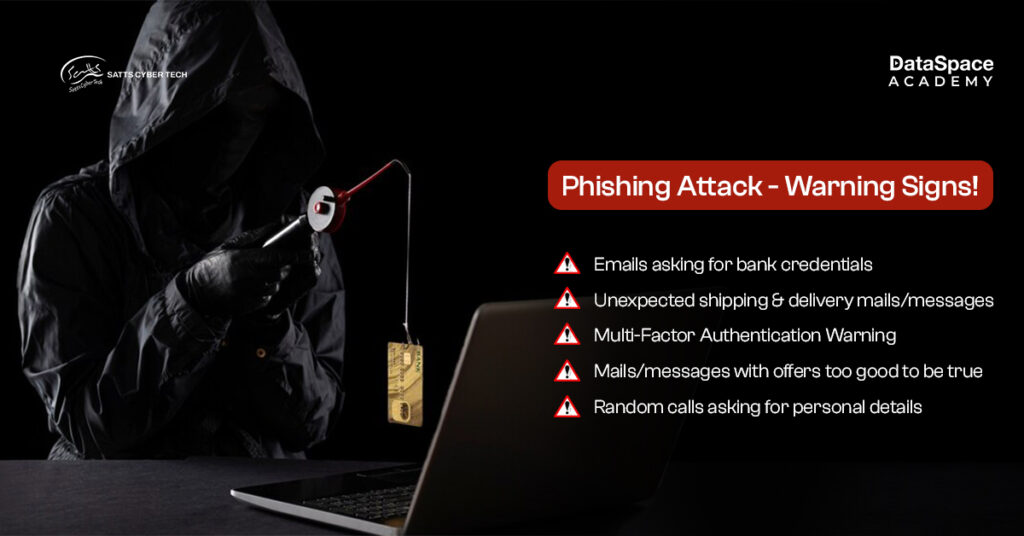Imagine checking your inbox and spotting a message that says, 'Congratulations! You've won the latest iPhone!' Sounds exciting, right?
But before you click on that tempting link to claim your prize, think twice—this could be a cleverly disguised
phishing attack waiting to wreak havoc on your personal information.
Cyber threats are becoming more sophisticated, but phishing remains scammers’ favorite bait to trick users into gaining unauthorised access. Still not convinced? These alarming findings by reputed cybercrime research organisations will definitely make your jaw drop.
This blog entails the nitty gritty of phishing attacks, types, and prevention tips to boost your cyber awareness and keep you cyber safe.
A phishing attack is a type of social engineering cyber scam in which attackers impersonate trusted entities to trick individuals into sharing sensitive information - such as passwords, financial details, or personal data. These attacks often occur through deceptive emails, messages, calls, or fake websites that appear “legitimate”.
Phishing attacks peak around festive times like Diwali or Black Friday, leveraging tempting offers. Alarmingly, the success rate of social engineering attacks is nearly 100%.
There are various
types of phishing attacks of which email phishing is the most common. In this case, scammers send
phishing link in emails, luring users to malicious sites. Then you have spear phishing, which targets “specific” individuals. Smishing and Vishing are other menacing phishing attacks where attackers manipulate victims through text messages and phone calls respectively.
Worse, phishing scams are getting smarter and it’s high time for both individuals and organisations to recognise these methods and stay vigilant.

Phishing scams are not hard to identify and avoid only if you are smart enough to let go of greed and curiosity. Let’s get into the basics of identifying deadly hooks and tips to
avoid phishing attacks so you don't swallow the bait.
Phishing wreaks havoc on mental peace, finances, and even market reputation (if the victim is an organisation).
Let’s discuss some of the devastating impacts of phishing attacks on individuals and organisations:
 Phishing attack
Phishing attack remains a significant threat in today’s digital age. Equipping yourself with the knowledge to counter such attacks is essential. Enrolment in
cybersecurity courses online empowers aspirants with practical skills and expertise - ensuring they stay job-ready while contributing to a safer cyberspace. Secure your future by mastering cyber defense today!

 Phishing scams are not hard to identify and avoid only if you are smart enough to let go of greed and curiosity. Let’s get into the basics of identifying deadly hooks and tips to avoid phishing attacks so you don't swallow the bait.
Phishing scams are not hard to identify and avoid only if you are smart enough to let go of greed and curiosity. Let’s get into the basics of identifying deadly hooks and tips to avoid phishing attacks so you don't swallow the bait.

